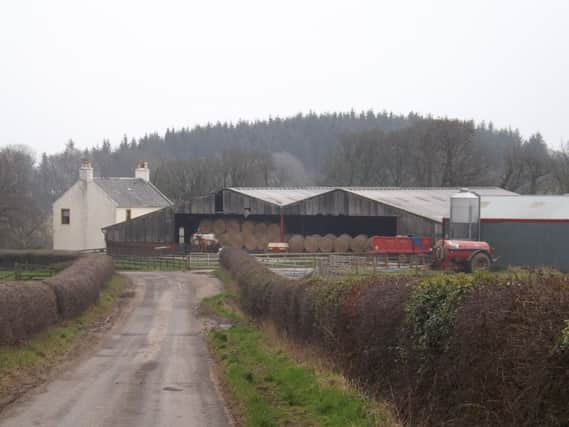Young farmers need farms to improve vital industry


Scottish farming needs new blood. The industry covers some 75 per cent of our land area, employs approximately 65,000 people and produces livestock, cereals, oilseeds, vegetables and fruit. Yet many people who have a passion to become farmers struggle against numerous barriers. Now though, there is support and there are opportunities available to help overcome them.
The Scottish Government’s new entrants to farming programme run by Scotland’s Rural College, through its SAC Consulting arm, aims to help address some of the issues. It offers new and potential entrants information and advice on how to effectively enter and survive in the industry, the range of skills required and support measures available through mechanisms such as the EU funded Scottish rural development programme (SRDP).
Advertisement
Hide AdAdvertisement
Hide AdThe activities we are delivering include ten “new entrant groups”, from the Western Isles to Stranraer. In addition there have been new entrant conferences and there is a dedicated website with guidance notes, case studies and further information to aid new entrants in making their businesses a success.
As a new entrant myself – my partner and I were lucky enough to get a Forestry Commission Scotland Starter Farm Unit – I am personally only too aware of some of the barriers faced by new entrants. They can be divided into two main categories, finance and land.
Often new entrants have a lack of security with no or limited credit history nor financial security from a guarantor. An additional barrier is that farming finance can often be tied up for a long time before there is a return on the investment. For example after buying a breeding heifer, she must be successfully mated, followed by a nine month pregnancy with the calf born, reared and often, sold a year later. There can be a wait of at least two years for any return on the initial investment with a further year delay before any more income from that original cow and her new calf, while all the time facing the costs of inputs like feed and medicines. It requires a certain level of scale for new entrants to become self-sustained, something very daunting when sourcing the required level of finance.
To help overcome these barriers, the Scottish Government has added a new entrant package to the SRDP as part of the latest common agricultural policy reforms. Two dedicated funding schemes have been created. The young new entrants start-up grant offers initial capital to help with the costs of setting up a business. A new entrants capital grant is designed as an improvement grant to help new entrants develop their businesses.
The availability of land, either to buy or rent, is the next barrier. It is estimated that the average age of a Scottish farmer is approximately 58. Many of these individuals do not have a successor in place so, at first sight, there seems to be opportunity. But very often economies of scale mean other farming businesses snap up this land at prices few new entrants can afford. The value of agricultural land in Scotland is at an all-time high, which, with the finance barrier, makes it very testing for any new blood entering the industry.
For those trying to enter the industry, often the only option of getting access to land is to rent it on a seasonal basis. This allows the business to be established but there are drawbacks in terms of security and infrastructure.
With a lack of longer-term fixed tenancies offered by landowners, one scheme offers some hope to new entrants. Forestry Commission Scotland is offering “Starter Farm Units” across Scotland, like the one I share with my partner. These are usually in the region of 60-70 hectares, have suitable fixed equipment and infrastructure and are let on a ten-year long duration tenancy.
My partner and I have certainly found the new starter farms have offered real encouragement and hope.
Advertisement
Hide AdAdvertisement
Hide AdHowever, it is clear from new entrant events around the country that there is still a very strong demand. There are many passionate young and not so young people desperate to become Scottish farmers.
• Kirsten Williams is a consultant to Scotland’s Rural College (SRUC). For more information on the new entrants programme, contact Kirsten on 01888 563 333 or [email protected]. www.sruc.ac.uk
SEE ALSO